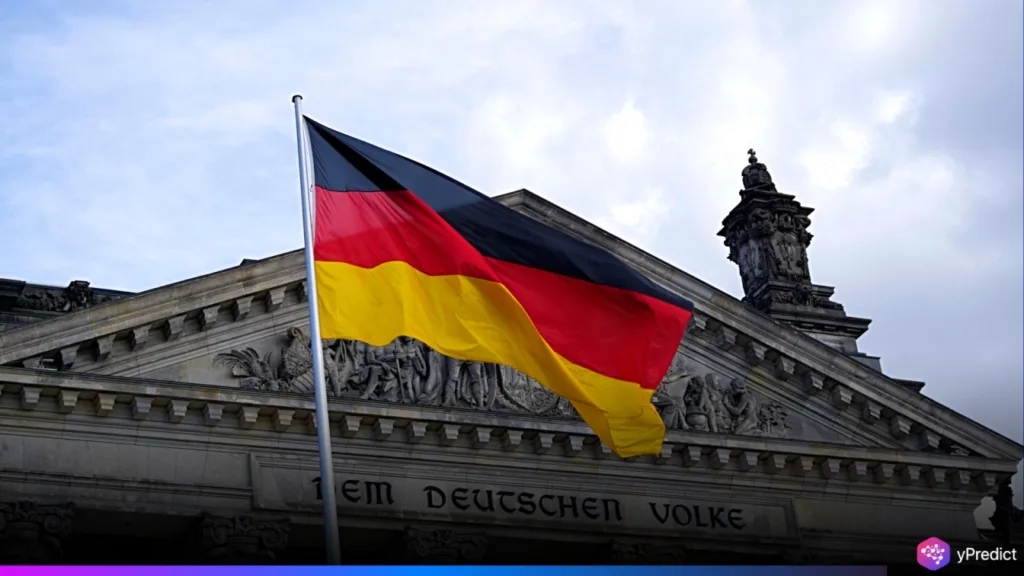
In a landmark move that underscores the growing intersection between private capital and national security, German AI defense startup Helsing raised €600M in fresh funding led by Prima Materia, the venture firm co-founded by Spotify CEO Daniel Ek. This investment not only propels Helsing’s valuation to €12 billion but also signals a seismic shift in Europe’s approach to defense innovation. As geopolitical tensions escalate, the rise of venture-backed defense firms like Helsing highlights how cutting-edge AI technology is fast becoming central to the future of European military capabilities.
Spotify CEO Leads Defense Bet as AI Warfare Escalates
The Financial Times reports Spotify’s Co-founder and CEO led a €600 million investment in Helsing, a Munich-based defense AI firm. His investment significantly boosts his influence in Europe’s fast-growing military tech sector, reflecting rising interest in dual-use artificial intelligence applications.
The funding round, led by his firm Prima Materia, values Helsing at around €12 billion, showing strong investor confidence. Helsing now ranks among the top five private tech companies in Europe, marking a major milestone in regional defense innovation.
Founded in 2021, Helsing is evolving from a defense AI software firm into a full-spectrum tech provider, now developing strike drones, surveillance aircraft, and unmanned submarines. Its platform fuses data from sensors, radar, and weapons systems to deliver real-time battlefield insights.
Additionally, Helsing achieved a milestone by testing an autonomous Saab jet fighter system and revealed plans for AI-powered submarines to boost underwater surveillance. Committed to going public, the company rejects acquisition offers. Founded by Niklas Köhler, Gundbert Scherf, and Torsten Reil, Helsing is growing through partnerships with Saab and Mistral, though a past collaboration with Rheinmetall has ended.
Strategic Autonomy Through AI
The timing of the investment reflects rising global tensions and renewed urgency among European nations to develop autonomous defense capabilities. As AI-powered warfare becomes a defining feature of modern conflict, demonstrated most clearly in Ukraine, countries are accelerating efforts to digitize their defense strategies. Ek said in a statement that,
The world is being tested in more ways than ever before. That has sped up the timeline. There’s an enormous realisation that it’s really now AI, mass, and autonomy that is driving the new battlefield. We can’t understate the implications of that for this conflict [in Ukraine] or any conflict going forward.
Helsing reflects Europe’s shift toward defense self-reliance as nations rethink dependence on U.S. support. With contracts from the UK, Germany, and Sweden, and thousands of drones sent to Ukraine, the company is rapidly advancing. It recently tested an autonomous Saab jet fighter system and announced plans for AI-powered surveillance submarines.
Advancing Strategic Growth and Autonomy
Helsing recently marked a major technological breakthrough by successfully testing an autonomous air combat system capable of piloting a Saab jet fighter, while also announcing plans to develop AI-powered submarines for enhanced underwater surveillance.
Despite rising visibility, the company remains committed to an independent future, aiming to go public rather than pursue an acquisition. Founded by Niklas Köhler, Gundbert Scherf, and Torsten Reil, Helsing continues to expand through strategic partnerships with Saab and French AI firm Mistral, though a previous collaboration with Rheinmetall has concluded.
Ek, who has faced criticism for his defense investments due to his high-profile role at Spotify, remains undeterred. He said,
I’m sure people will criticise it, and that’s okay. Personally, I’m not concerned about it. I focus more on doing what I think is right, and I am 100 per cent convinced that this is the right thing for Europe.
Helsing’s rapid ascent comes amid a broader defense tech boom. U.S.-based Anduril recently secured $2.5 billion in funding at a $30.5 billion valuation, while European drone startups like Quantum Systems and Tekever also crossed the billion-euro valuation mark in recent weeks. These moves indicate a global race not just for military strength, but for technological edge.





